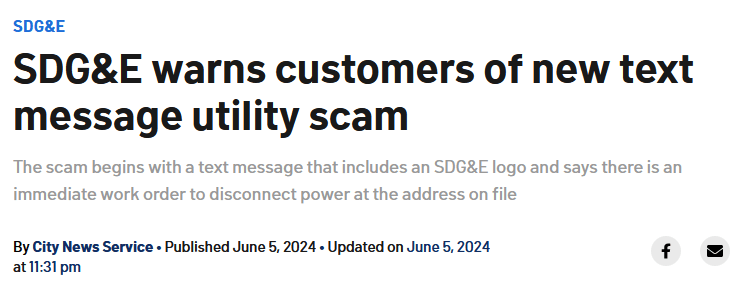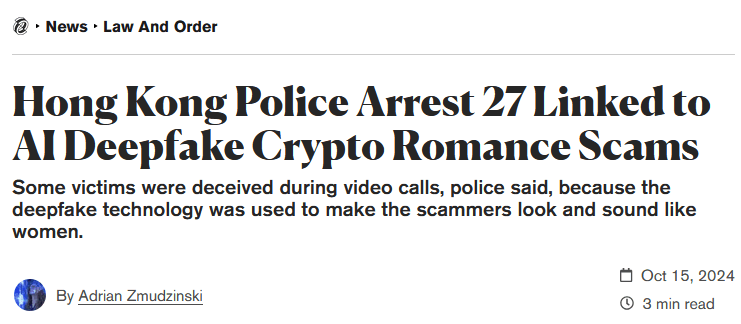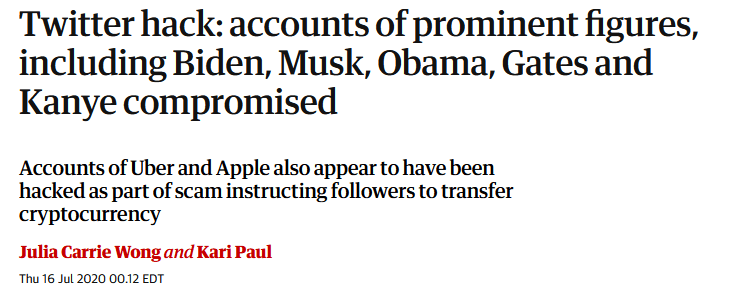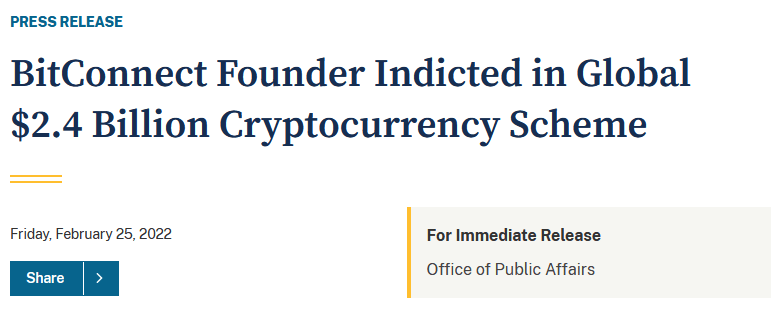Warning Signs You Might Have Been Scammed Out of Your Crypto
In this article we are going to cover:

- Crypto scam red flags
- How to Know if you may have been scammed
- What to do if you've been scammed
Plus more... Read on to learn everything you need to know about all the red flags in crypto scams.
Cryptocurrency may be an exciting investment opportunity for many, but the technical complexity in using it also attracts scammers looking to take advantage.
In fact, you may be reading this because you suspect you may have had your crypto stolen in a scam.
Not to worry!
In this article, I’ll outline some of the biggest red flags you might encounter if you are being scammed out of your crypto.
After reading it, you should have a pretty good idea if that investment you made was too good to be true after all.
Think You've Been Scammed?
High-Pressure Sales Tactics
High-pressure sales tactics involve using urgency and pressure to push you into making quick investment decisions without adequate time to research or consider the opportunity.
What to Watch Out For
The moment you feel overly pressured by the salesperson of an investment opportunity, keep your eyes open to the following red flags:
-
Urgent deadlines to make an investment decision.
-
Phrases like “limited time offer” or “act now before it’s too late” or “This opportunity closes tomorrow”.
-
Being told there is no need for due diligence because you must act now.
-
Strong pressure to recruit others into the program or investment.
Legitimate investments should always give you time to review terms, ask questions, and perform your due diligence, while high-pressure tactics are often designed to prevent you from consulting experts or researching properly.
The OneCoin Scam
OneCoin was a fraudulent cryptocurrency scheme that operated between 2014 and 2017.

The organization recruited successful multi-level marketing (MLM) promoters like Igor Alberts to rapidly expand its reach.
Enticed by the prospect of enormous wealth, Alberts directed his extensive network of sales people to aggressively sell OneCoin.
The promoters emphasized urgency and promised massive returns, pushing people to invest quickly without proper research.
This high-pressure approach exemplifies how scammers exploit urgency to trap victims.
High Guaranteed Returns with Little or No Risk
If an investment guarantees a specific return, especially a high rate with little or no risk, you can almost be certain it’s a scam.
While some legitimate investments offer guarantees (like savings accounts and bonds), these are usually very low rates of return and the guarantees are backed by US government insurance.
If you don’t want to have to think too hard about it, I think the SEC put it best:
...(C)rooks talk about “guaranteed” high returns to try to sucker you into sending them your money. We've devoted (a lot of time) to telling you to run, not walk from people who tell you a high return is “can’t miss” or “guaranteed”.
What to Watch Out For
If you are considering making an investment in a crypto or a company claiming to be an investment group, watch out for these red flags:
-
Promises of substantial profits in a short period.
-
Claims that an investment is “risk-free” or “guaranteed.”
-
Boasts returns that seem too good to be true or at least improbable.
-
Lack of investment disclosures and documentation
-
Difficult to understand how the investment makes money for investors.
No legitimate crypto investment can guarantee high returns without risk.
Unlike traditional savings accounts backed by government bodies, cryptocurrencies are speculative and volatile, so any promises of guaranteed returns in this space should be met with immediate distrust.
Real-World Example: BitConnect Scam
In 2018, BitConnect became the first major ponzi scheme in crypto to collapse, though it would certainly not be the last.
The platform promised investors returns of up to 40% per month with little risk.
Thousands of investors poured money into the scheme, enticed by the guaranteed high returns. When BitConnect shut down, investors had lost over $2.4 billion.
Requests for Personal Account Information
Scammers often attempt to gain access to your personal accounts by pretending to be trustworthy entities. By obtaining sensitive data about you, they can access your existing accounts or open new ones in your name, risking significant financial loss.
What to Watch Out For
If anyone asks for any of the following items, you should assume they are trying to steal your crypto:
-
Unsolicited requests for personal information such as your name, Social Security number, or government ID.
-
Demands for login credentials, including usernames, passwords, or PINs to any online accounts, especially financial or crypto-related accounts.
-
Requests for recovery (seed) phrases, private keys, or PIN numbers to your crypto wallets.
-
Unexpected password reset links sent via email or text, urging you to change your password immediately.
-
Requests to log in to your crypto accounts during a phone call or chat, especially if you’ve granted someone remote access to your computer.
-
Questions about account security details, like answers to common password reset questions (mother’s maiden name, first pet’s name, etc.).
-
Links to websites that look legitimate but have unusual web addresses or lack secure connections (no HTTPS).
Legitimate organizations will never ask for will never ask for sensitive account details via email, phone, or social media.
Under no circumstance whatsoever will they ever ask for private keys and seed phrases, or wallet PINs.
Real-World Example: Ledger Data Breach
For a lesson in just how much damage a scammer can do with your info, look no further than the Ledger customer data breach of 2020.
Ledger, the largest crypto hardware wallet company in the industry, suffered a major data breach exposing the personal info of over 270,000 customers.
Employees at Shopify, Ledger’s ecommerce CMS software provider, used their permissions to steal the customer data of both Ledger and a few other companies using Shopify as well.

The Leaked data included customer emails, phone numbers, and home addresses, leading to widespread phishing attacks.
Many compromised customers received fraudulent emails, phone calls, and even physical mail attempting to steal their assets by tricking them into revealing their wallet recovery phrases.
Think You've Been Scammed?
Difficulty Withdrawing Funds
Once scammers have successfully convinced their victim to deposit crypto with them, they may place strict limitations on how much or how often can be withdrawn from their account at a time.
The rules are designed to make it impossible to withdraw all your money.
What to Watch Out For
If you feel that withdrawing your money from your accounts is unreasonably difficult, consider some of the red flags seen with this scam:
-
Complications or excuses arise when you attempt to withdraw your investment.
-
Demands for additional fees or taxes before releasing your funds.
-
Unresponsive support or evasive answers from the platform when you inquire about withdrawals.
-Rules that cannot be profitably complied with.
Scam platforms are not upfront about their fees and withdrawal limits because they are designed to prevent you from withdrawing your funds.
While legitimate platforms may also impose limits and fees at withdrawal, they will have been communicated to you up front, and they will not be so strict that you can never get all your money out.
Real-World Example: The PlusToken Scam
PlusToken was a cryptocurrency wallet and investment platform that promised high returns to its users.
When investors tried to withdraw their funds, they faced endless fees and delays, then…nothing.
In 2019, the operators disappeared with between $3B and $6B, leaving investors with significant losses and no way to retrieve their funds.

Unregistered or Unregulated Platforms
Investing through unregistered or unregulated platforms exposes you to significant risks, as these entities operate without oversight from financial authorities.
What to Watch Out For
If you begin talking to anyone about an investment, look out for the following red flags:
-
Companies not registered with financial regulatory bodies like the SEC or the FCA.
-
Lack of verifiable contact information, such as physical addresses or official phone numbers.
-
Operations without regulatory oversight, making it difficult to hold them accountable.
Legitimate operations will be easy to communicate with and their leadership will be easy to find and verify.
Real-World Example: Mirror Trading International
Mirror Trading International (MTI) was a multi-level marketing and ponzi scheme that promised high returns to investors via its AI Bitcoin trading bot.
Unfortunately, there was no bot, and the entire company was being operated without any regulatory oversight or registration with the financial authorities.
After authorities discovered the fraud, the founder fled to Brazil with much of the money still yet to be recovered.
In 2023, a US court order demanded that MTI pay $1.7B in restitution to victims, though to my knowledge this has never been paid.

Suspicious Website or Communication Characteristics
Scammers often use cloned websites or communications riddled with errors to trick unsuspecting victims.
What to Watch Out For
Watch out for:
-
Poor grammar or spelling mistakes in emails, messages, or website content.
-
Websites without secure connections (no HTTPS) or with unusual URLs.
-
Email addresses that don’t match official company domains, such as using public email services.
Because the websites scammers use are often clones of the real website with a slightly different domain, it’s a good idea to search for the real website in google and compare the URLs.
Do not input any personal information into a website that has been sent to you by someone else.
Real-World Example: Phishing Scam with Altered URLs
In 2023, hackers cloned the websites of various Canadian pizza chains and hosted them at similar-looking URLs to the real ones.

Using paid ads to rank these sites high in search results, scammers tricked users into entering sensitive payment information, leading to unauthorized purchases.
(This scam uses a technique called “typosquatting”) to create domains with slight misspellings of legitimate ones and homograph attacks which use similar-looking characters. Additionally, attackers often ...employ generative AI to create \[cloned\] websites.
Think You've Been Scammed?
Unusual Payment Methods Required
Scammers often insist on unconventional payment methods that are difficult to trace or reverse.
What to Watch Out For
Be suspicious if you’re asked to:
-
Pay exclusively in cryptocurrencies, especially if the platform refuses traditional payment methods.
-
Use complex or convoluted payment processes that seem unnecessary.
-
Send funds to personal wallets rather than corporate accounts.
Cryptocurrency transactions tend to be irreversible, so you should be very careful before you hit send on your wallet.
Real-World Example: Utility Bill Bitcoin Scam
Scammers are now impersonating utility companies, contacting consumers to demand immediate bill payments in Bitcoin to avoid service disconnection or fines.

The FTC puts it best:
No utility company will text you about a shut-off, and no utility company will demand payment in cryptocurrency. Those are scams. And before it shuts off service, all real utility companies will notify you in writing and offer a repayment plan.
Sudden Romantic Interest
Has a new love interest suddenly come into your life but you aren’t sure if they can be trusted?
Still haven’t met them?
Are they constantly asking you to invest?
If so, pay attention.
What to Watch Out For
Be cautious if any of the following sound familiar about your new online sweetheart:
-
Met you online, perhaps on a dating or messaging app.
-
It is difficult to get them to meet or take a video call with you.
-
Professes strong feelings or love for you without ever meeting in person.
-
Claims to have exclusive investment tips or secret opportunities.
-
Encourages you to keep the relationship or opportunity confidential, even among your closest friends and family.
-
Pressures you to act quickly before the opportunity disappears.
-
Sends you screenshots of profits they have made from the investment they are pitching you.
It is not uncommon for some of these romance scammers to spend weeks or months gaining your trust before they ever bring up any investment opportunities.
Real-World Example: Crypto Romance Scams
In recent years, fraudsters have begun using dating apps and social media platforms along with AI-generated deep fakes in order to target victims for crypto investment scams.

This makes it even harder to determine if your new girlfriend is a scammer because they are now more willing to get on a video call with you to prove their identity, even though its still all fake.
Regardless, they all attempt to build emotional relationships with their victims then introduce the idea of investing in cryptocurrencies, guiding victims to fraudulent platforms where they end up losing their money.
Unsolicited Insider Information
If you are considering investing in a project that came to your attention through a random unsolicited “tip” that you “shouldn’t tell anyone else about”, it may be wise to do a little more due diligence on it.
What to Watch Out For
Be cautious if you encounter the following from anyone claiming to give you free ‘insider information’:
-
Claims of secret investment opportunities not available to the general public.
-
Being messaged or called through unofficial channels like Telegram or text Messages.
-
The email addresses of the reps seem strange, for instance “mike@google.zt.com” or “james@Coinbase.wow.com”.
-
Encouragement to keep the opportunity confidential, emphasizing secrecy.
-
Pressure to act quickly before the “information” becomes public.
-
Unsolicited first contact where the rep starts the conversation with you first.
-
Poor English, bad spelling, or improper grammar in communications.
Legitimate people do not offer insider information because insider trading is illegal.
But even those who do it anyway do not give the information to random people on the internet.
They trade on it for personal profit.
Real-World Example: LinkedIn Insider Information Scams
North Carolina man Jim Wilkerson lost $790,000 to cryptocurrency scams after being lured by high-return investment opportunities pitched to him by a random person on LinkedIn.
Initially, he saw fake profits and could even withdraw small amounts, which made the scheme seem legitimate.
However, when he attempted to withdraw larger sums, the funds disappeared, and communication ceased.

Strange Celebrity Endorsements
While scrolling X (Twitter), Telegram, or LinkedIn, you might have come across a celebrity you admire publicly endorsing a cryptocurrency or some other financial product.
Perhaps you think it’s a little out of character.
If so, it’s worth looking into a bit more.
What to Watch Out For
Stay alert to the following if you see a celebrity endorsing anything on social media:
-
Their accounts are Unverified or appear suspicious.
-
Their endorsement seems wildly out of character or off-brand for them.
-
Typos and misspellings in their social media posts or the posts seem off-topic or random.
-
Posts about giveaways that require you to send cryptocurrency to receive more in return.
For-Profit entities in the US are not allowed to require upfront payment for giveaways, so legitimate firms will not ask for it.
Also, if you ever see an offer to send cryptocurrency and receive more back in return, you can be 100% certain 100% of the time that you are dealing with a scam.
Real-World Example: Twitter Bitcoin Giveaway Hack
In 2020, a 17-year old perpetrated a massive Twitter hack, compromising dozens of high-profile accounts, including those of Elon Musk and Barack Obama.

The hackers used these accounts to promote a Bitcoin giveaway scam, tricking users into sending funds with the false promise of receiving more in return.
In monetary value, the Hackers stole over $118,000 worth of bitcoin. But more significantly, this incident exposed the vulnerability of a global social media platform.
Immediate Steps If You Recognize These Red Flags
-
Cease All Communication: Stop interacting with the suspected scammer immediately.
-
Stop Sending Money: Avoid further loss - do not send any more money.
-
Document Everything: Save all emails, messages, transaction records, and any other relevant information.
-
Verify with Official Sources: Check the company’s legitimacy through regulatory bodies and official websites.
-
Update Security Measures: Change passwords, enable two-factor authentication, and secure your accounts.
Think You've Been Scammed?
Conclusion
The good news is there are so many red flags we can be on the lookout for.
The bad news is the scams are always changing.
If you suspect you may have been scammed, I recommend that you reach out to us to schedule a time to talk.
We’re Here to Help
If any of these warning signs sound familiar or if you’re uncertain about a recent crypto transaction, we encourage you to reach out to us.
Our team has substantial experience assisting individuals who may have fallen victim to crypto scams, and we’re here to provide the support and guidance you need.
Your Confidentiality Is Our Priority
We understand the sensitive nature of these situations. Rest assured that all communications with our firm are strictly confidential.
Your privacy and trust are of utmost importance to us, and we’re committed to handling your case with the utmost discretion.
Need Legal Assistance with Cryptocurrency Matters?
Our experienced team is here to help you navigate the complex world of cryptocurrency law. From regulatory compliance to dispute resolution, we provide comprehensive legal support.






